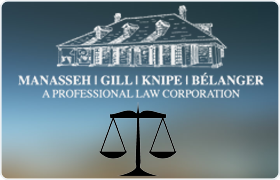Pride Felony Lawyer, Louisiana
Sponsored Law Firm
-
 x
x

Click For More Info:
-
James Manasseh, Esq.
8075 Jefferson Highway Baton Rouge, LA » view mapCriminal, Personal Injury, Environmental, Family We Like Trying Cases!
For more than 20 years, the accomplished attorneys at our firm have provided sound legal representation to individuals facing serious criminal charges.
800-654-1690  James Manasseh Baton Rouge, LA
James Manasseh Baton Rouge, LAAttorney At Law - Louisiana, 1988
Paul M. Hebert Law Center, J.D. - 1988
 Frequently Asked Questions
Frequently Asked QuestionsMost F.A.Q.
 Contact UsEmail or Call 24/7
Contact UsEmail or Call 24/7Call today for your initial free consultation.
Not enough matches for Pride Felony lawyer.
Below are all Pride Criminal lawyers.
Kathryn Jakuback Burke
✓ VERIFIEDKathryn graduated from LSU’s Paul M. Hebert Law Center in 2017. During law school she was an active participant in Moot Court and Trial Advocacy. Du... (more)
Jacob Guice Longman
✓ VERIFIEDJacob is a 2017 graduate of the Paul M. Hebert Law Center. During law school, he participated in Trial Advocacy and Moot Court, was President of the S... (more)
James P Manasseh
✓ VERIFIEDThe managing partner of the largest criminal defense intensive law firm in Louisiana, Manasseh has represented more than 12,000 clients over a twenty-... (more)
Wyman Earl Bankston
✓ VERIFIEDWyman spent the first four years of his practice with a national firm primarily representing insurance companies in losses sustained as a result of Hu... (more)
Stephen Babcock
✓ VERIFIEDA Louisiana native, Stephen Babcock has developed a reputation for taking on high-profile cases involving catastrophic personal injury matters and bus... (more)
FREE CONSULTATION
CONTACTFREE CONSULTATION
CONTACTSteve LeBlanc
Gracella Gail Simmons
FREE CONSULTATION
CONTACT

 James Manasseh Baton Rouge, LA
James Manasseh Baton Rouge, LA Frequently Asked Questions
Frequently Asked Questions Contact UsEmail or Call 24/7
Contact UsEmail or Call 24/7







